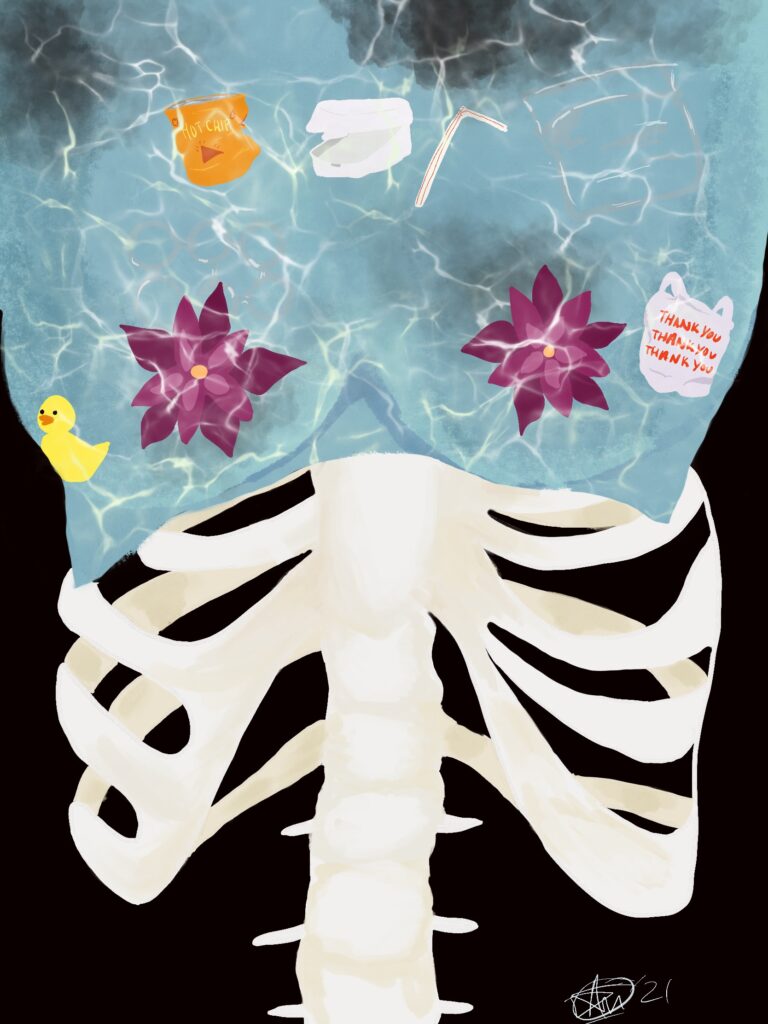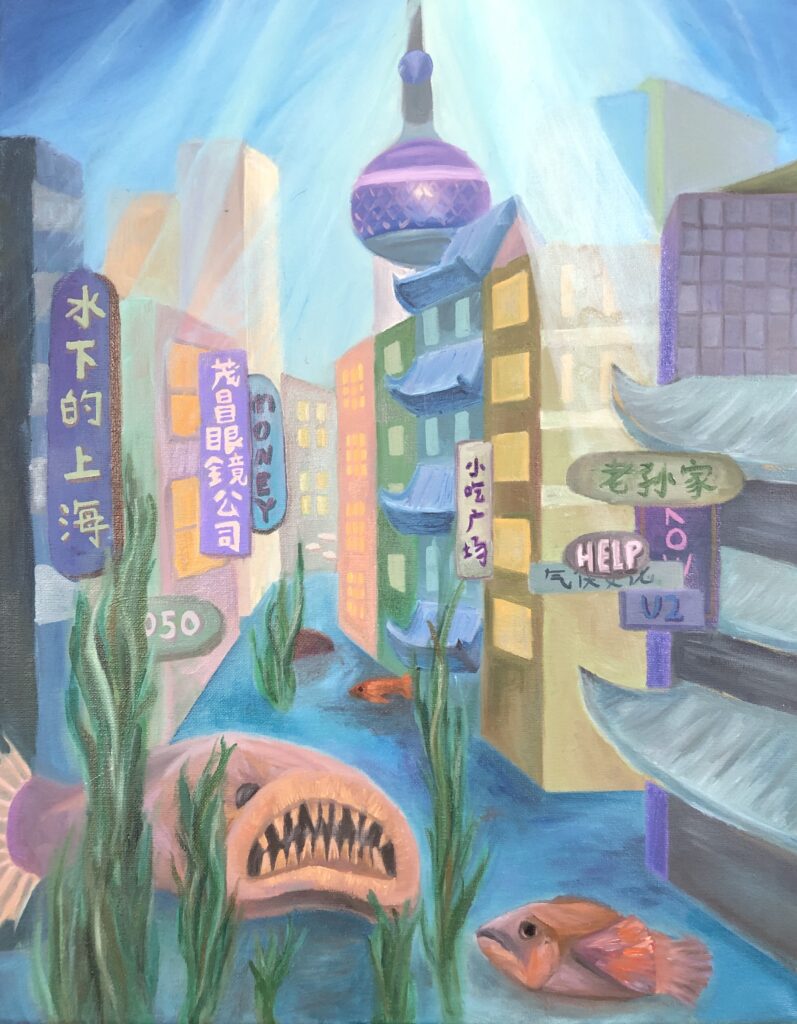This is our 2nd Annual Youth Art Campaign.
This project is an effort to maintain community engagement in creative ways to highlight local youth perspectives on intersectional ideas of environmentalism or environmental/climate justice. The goal is to give space for youth to be able to express any of their emotions, thoughts, and opinions and from this, stay more connected with one another through art and storytelling.
Submissions were accepted from youth around the Triangle area
Prompt:
Use this space to express any of your emotions or thought (positive and/or negative) about any intersectional topic of environmental/climate justice or any environmental topic of your choice:
– Possible topics: anti-racism work, community organizing, sustainable agriculture, ecotourism, intersectional veganism, activism, queer ecology, adultism, elitism, health disparities, hosing evictions, food deserts, ect.
Table Of Contents
- “Garbage on Mother” by Ari Lindquist – age 18 from Durham
- An Art Composition by Aida Guo – age 17 from Apex
- Piano Composition “Mountain Range” by Mia Foglesong – age 19 from Durham
- 3 short poems by Toheedat Bakare – Age 19 from Durham.

In this piece, I wanted to talk about two subjects and that is the depletion of the earth, but also how we view women. I wanted to make a juxtaposition using the symbol of garbage in Mother Nature and how the earth is dying and compare it to the long and harsh treatment women have faced through time. The title of this piece is called “Garbage on Mother”
- Ari Lindquist (they/them), age 18, and from Durham

My grandma, aunt, and uncle-in-law all live in a cozy apartment a distance away from the bustling city of Shanghai. There are countless stores to window shop from, hundreds of shaved ice stands for cooling off in the summer, and restaurants that serve xiao long bao and grumble your stomach for every step you take. Shanghai is predicted to be underwater due to the climate crisis by the year 2050. My family sends me videos of flooded roads and mandates to stay inside. My home is drowning.
- Aida Guo (she/her), 17, and from Cary and go to Green Level High School.
This improvisation is called Mountains for the goal was to create an atmospheric sound of the mountains and different energies that flow within them. The music itself is a wonderful way people connect with each other but also the earth and the beauties it contains. There are several different communities and cultures (i.e. indigenous cultures) that not only use music as a way to connect with nature but also use it as a repository of their history. The point of this was to reflect on the intersectionality between music and environmental justice in how I find it interesting that a lot of the most sustainable cultures are ones that have ways to connect to the earth. I would also be remiss not to talk about how westernized my music listening used to be. I’ve made strides to try to diversify what I listen to music from other cultures outside of what we see as western. I suggest others do the same. Some music you might not like immediately and that’s ok because sometimes it grows on us and requires us to put meaning into it.
- Mia Foglesong (they/them), 19, and from Durham
“I kiss the rain and it will kiss me back” is a short poem about food insecurity. Included in the work is a reference to poverty, undereating (though most who experience food insecurity are overweight due to consumption of unhealthy foods), and racism/racial indifference (a reference to Black French writer Frantz Fanon). Though short, I feel it is packed with several details.
“and the wind will continue to blow,” is a longer poem discussing a possible conclusion to our current extinction event. It alludes to humans being unable to stop the damage done to the planet and how that impacts all other forms of life and things on this planet. Though, there is a touch of “hope” in the form of a reference to wind turbines: though all even will fade, our efforts will remain (explains why the building is included but not the turbine).
“P Kg,” is an extremely short prose piece about great mass extinction, filled with juxtapositions and metaphors. The title itself is a reference to the most severe extinction event in Earth’s history, the P Kg extinction event which wiped nearly all species. The end is left ambiguous as to leave the readers to their interpretation of the universe’s final message of goodbye. It is much more somber, yet not outright sad.
- Toheedat Bakare (she/her), 19, from Durham.

